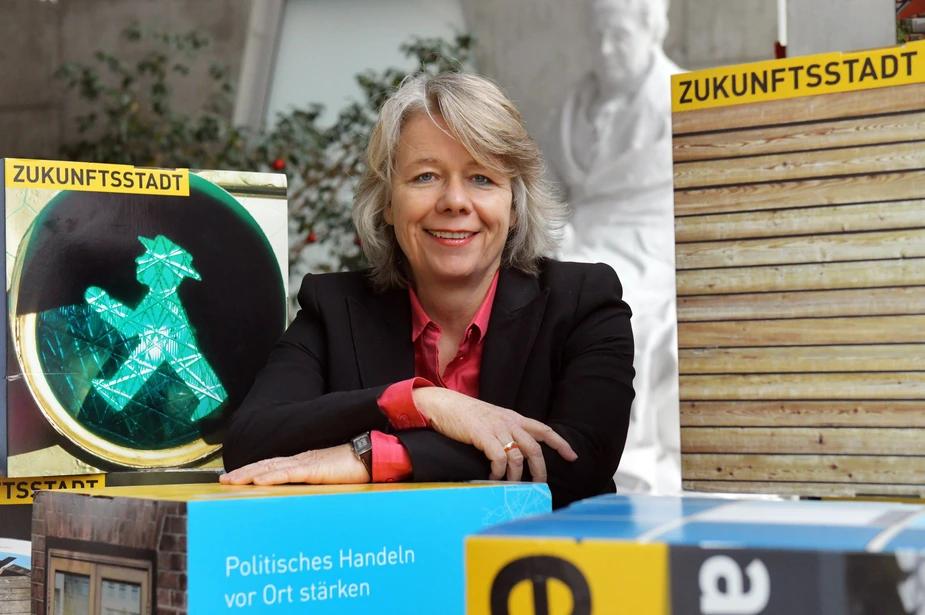Researching Big Cities
An Adlershof-based geographer takes a close look at the consequences of gentrification
Her research topic regularly makes the headlines. Ilse Helbrecht’s focus is on gentrification, a global process that also leads to heated debates and vocal protesting in Berlin. “We are talking about a process in which more well-off groups displace the less well-off groups out of their traditional neighbourhoods,” says Helbrecht, who is a professor at the Institute of Geography of Humboldt-Universität zu Berlin (HU). However, gentrification is just one aspect of her work as a full professor for cultural and social geography. “I am an urban researcher and focus on cultural and social issues in city development,” she explains.
Eighty percent of Europe’s population lives in cities. Cities are changing due to immigration, an ageing population and new family types brought about by, for example, same-sex marriage. How can we ensure communal life in increasingly diversifying societies? This is one of the questions that Helbrecht addresses. A recent project, funded by the German Research Foundation, asks: how does a diverse society age? Helbrecht is also involved in a new collaborative research centre on the re-figuration of space, which is based at HU and Technical University Berlin.
Teaching is important to her, which is how she managed to motivate her master’s students for an ambitious project. Her aim was to empirically examine how gentrification affects those who were pushed out of their familiar settings. “When we look at the gentrification process, we know a lot about the revaluation of the affected neighbourhoods, but much less about the negative ramifications,” says Helbrecht. The questions are hard to research due to the lack of robust data, for example, from a population census. However, the students managed to reach some of those who were forced to leave. The results are available in a paperback titled “Gentrification and Resistance: Researching Displacement Processes and Adaption Strategies”.
Such a level of commitment convinced a jury that awarded Helbrecht with the Caroline von Humboldt Professorship in 2018. Funded by the German Universities Excellence Initiative, the award honours outstanding female professors of the HU and supports their research with 80,000 euros prize money. The award criteria include international excellence, relevance of the research results beyond the realms of academia and prolific publishing.
The HU geographer’s career biography met all these criteria. This is evene more remarkable since the structures in universities and research tend to favour men. “I have always had to fight,” says Helbrecht. It was hard to get access to male-dominated networks. The further one goes up the career ladder, the more the number of women decreases. Roughly half of the students in geography are female, but only about 20% of professorships are held by women. This has led Helbrecht to believe that gender quota legislation, like that for Dax-listed companies, is strongly worth considering.
Ilse Helbrecht achieved her career without a gender quota. She studied in Munster and completed her PhD and her habilitation thesis at the Technical University in Munich. After a two-year post-doc stay in Vancouver, she became full professor in 2002 and was the vice-rector of the University of Bremen for three years. In 2009, she was called to join the HU and was department head there from 2015 to 2017. Since 2014, she has also been the director of the Georg Simmel Center for Metropolitan Studies, an interdisciplinary coordination platform of the HU, which is based in Berlin-Mitte.
By Paul Janositz for Adlershof Journal
